Spotlight on the Public Domain
A Trivial Blog Post for Serious People
This is one of a series of blog posts related to the NYPL Public Domain Release: discover the collections and find inspiration for using them in your own research, teaching, and creative practice.
The Importance of Being Digitized
As you might have heard, the New York Public Library has recently made over 180,000 of its digitized images easily available in high resolution for use, reuse, and reimagination. My colleagues have been excitedly collecting their favorites from this public domain pool. I’d like to take my own deep digital dive and highlight one specific and exceptional text, contained in three handwritten notebooks in our Digital Collections.
They are, at first blush, modest documents. Titled A serious comedy for trivial people and authored by Oscar Wilde, the initial image is of a plain black notebook. But what you’re seeing is actually the earliest draft of Wilde’s play The Importance of Being Earnest, written by hand and with the author’s frequent emendations. You might be asking yourself: How did that end up at NYPL? or Why doesn’t that doesn’t look quite like the play I know and love? Well, carry on, earnest Earnest reader, for these answers and more.
A Manuscript of Great Importance
Oscar Wilde first began drafting the play in August of 1894. He was pleased from the start, noting in an August letter to his lover Lord Alfred Douglas, “My play is really very funny: I am quite delighted with it.” Over the next few months, Wilde continuously shaped the play, producing and editing multiple typescripts between September and December of that year. An early draft was completed at least by late October, as Wilde sent “the first copy” to George Alexander, the actor, producer, and theater manager who would eventually inhabit the role of John “Jack” Worthing in the play’s inaugural run. In January of 1895, shortly before the play was staged, Wilde quickly condensed it from four acts into three. This substantial change was done at the behest of Alexander, but not without protestation from Wilde in his characteristically dry wit: “The scene that you feel is superfluous cost me terrible exhausting labor and heartrending nerve-wracking strain,” he objected, “it must have taken fully five minutes to write.”
The Importance of Being Earnest opened at the St. James Theatre on Valentine's Day, 1895. Shortly afterwards, Wilde’s personal life took a steep downward turn, as he became embroiled in the court battles that would lead to his bankruptcy and imprisonment. When Wilde passed away five years later, his affairs were in disarray. The notebook containing Acts III and IV of the original four-act Earnest were in the possession of Wilde’s friend and literary executor, Robert Ross. Ross donated this notebook, along with other personal papers, to the British Library in 1909. The three notebooks containing Acts I and II were not included, however, having been borrowed by Ross’ associate, A.B. Clifton, sometime before Wilde’s death. These were eventually discovered in an old trunk — a plot twist worthy of Wilde himself — after the deaths of Mr. and Mrs. Clifton. In 1950, the notebooks were sold at auction and passed into the New York Public Library’s George Arents Collection of Tobacciana — Jack Worthing’s cigarette case being an essential plot point in the play’s narrative.
So by a circuitous path, these three notebooks traveled from Tite Street to Fifth Avenue to, well, everywhere, since they can now be read in their entirety in NYPL’s Digital Collections. What’s more, we can get a feel for Wilde’s process and the fluid state of the text, since we have at our disposal his original draft, his subsequent edits, and the first printed edition of 1899, which can be read in full through the Literature Online database. (Those who want even more detail can also consult the typescripts that document the transmission of the text from manuscript to publication.) We can observe changes and additions, as well as the scenes and characters omitted during Wilde’s more extensive January 1895 rewrites.
An Ideal Copy
Wilde’s notebooks are an instant reward: the very first text-bearing page is one of my favorites. There is no title page — more on that later — so instead we find Wilde’s signature and a revised epigraph. Wilde changes his initial “A trivial comedy for serious people” to the more mocking “A serious comedy for trivial people.” By the time the play was performed, the line was changed back.
The next page contains the dramatis personae, which might raise a few flags for the Wilde enthusiast. Instead of the familiar Algernon Moncrieff, Lady Bracknell, and Merriman, we instead have Algernon Montford, Lady Brancaster, and Mathews. Moreover, there is an entirely new character, Thomas R. Hubbard the solicitor. Following this page is a short description of the four acts. During the January 1895 rewrites, Acts I and IV remained largely intact, while Acts II and III were condensed into one, with poor Mr. Hubbard a necessary casualty.
One of my favorite scenes in Act I is Lady Brancaster’s interview of Jack Worthing, where she judges his suitability as a husband for her daughter Gwendolyn. When he confesses to being an orphan, left in a handbag at Victoria Station as a baby, Lady Brancaster responds, “To be born, or at any rate bred in a handbag, whether it had handles or not, seems to me to display a contempt for family life that reminds one of the worst excesses of the French Revolution. And I presume you know what that unfortunate movement led to.” This portion has been added to the initial body of text in a series of additions on the facing page.
Lady Brancaster also reversed her position on smoking during the writing process. Wilde was himself an avid smoker, but Lady Brancaster initially disapproves. When Jack begins the interview by retrieving his cigarette case, she glares at him, prompting Jack to “look[] ashamed and replace[] it quietly in his pocket.” By the 1899 edition, the now Lady Bracknell is offering her own pro-tobacco bon mots. When Jack admits to smoking, she replies, “I am glad to hear it. A man should always have an occupation of some kind. There are far too many idle men in London as it is.”
By Act II, we already have some changes to the elements of the play. First, we have a title, though not the expected one, Lady Lancing. Wilde mentioned this false title in his October 1894 letter to George Alexander, when he stated, “[The play] is called Lady Lancing on the cover: but the real title is The Importance of Being Earnest. When you read the play, you will see the punning title’s meaning.” Wilde had a practice of using false names for his plays, often a woman’s name. This was likely to prevent the disclosure of the title before the play was publicly staged. Other than a passing reference to a Lady Lancing in Act IV, the temporary title has no bearing on the substance of the play. Aside from the new title, we also see some edits to the characters; Mathews has been rechristened Merriman, and Hubbard is now Gribsby.
Both Gribsby the solicitor and Moulton, Jack’s gardener, were ultimately doomed for the cutting-room floor. Moulton had only a handful of lines, but Gribsby was present for an entire scene, where Algernon contests an expensive bill he incurred at the Savoy Hotel. “No gentleman ever has any money,” a bewildered Algernon protests, to which Gribsby replies, “My experience is that it is usually relatives who pay.” As Algernon is currently assuming the identity of Jack’s brother, Jack ends up with the bill, bitterly responding, “Personally, if you ask me, I don’t see any use in having a brother." In a later omitted part, Algernon then proceeds to dine on a whopping six lobsters for lunch — all, of course, at his dear “brother” Jack’s expense.
Whether you’re a serious researcher or a trivial one, a close read of Wilde’s manuscript promises constant discoveries and a unique glimpse into the mind of the author. Be sure to try out the “View as Book” option for a nice, page-flipping-friendly interface. I implore you quite earnestly: open that notebook and start your own digital dive!

For Love of the Footnotes
To learn more about Oscar Wilde, The Importance of Being Earnest, and NYPL’s manuscripts, try the 1956 and 2006 editions of the play, both with helpful introductions, commentary, and related material. The letters mentioned in this post were compiled in The Complete Letters of Oscar Wilde and can be found on pages 602 and 620. Plus, be sure to explore our many English and American Literature databases, such as Literature Online and Literature Resource Center—both available from home!—for biographies, full texts, and literary criticism related to Oscar Wilde and a wide variety of other authors.
Image credits for The Importance of Being Earnest notebooks: Rare Book Division. New York Public Library. Astor, Lenox, Tilden Foundations. Online access to Punch is provided by HathiTrust.
Read E-Books with SimplyE
 With your library card, it's easier than ever to choose from more than 300,000 e-books on SimplyE, The New York Public Library's free e-reader app. Gain access to digital resources for all ages, including e-books, audiobooks, databases, and more.
With your library card, it's easier than ever to choose from more than 300,000 e-books on SimplyE, The New York Public Library's free e-reader app. Gain access to digital resources for all ages, including e-books, audiobooks, databases, and more.
If you don’t have an NYPL library card, New York State residents can apply for a digital card online or through SimplyE (available on the App Store or Google Play).
Need more help? Read our guide to using SimplyE.
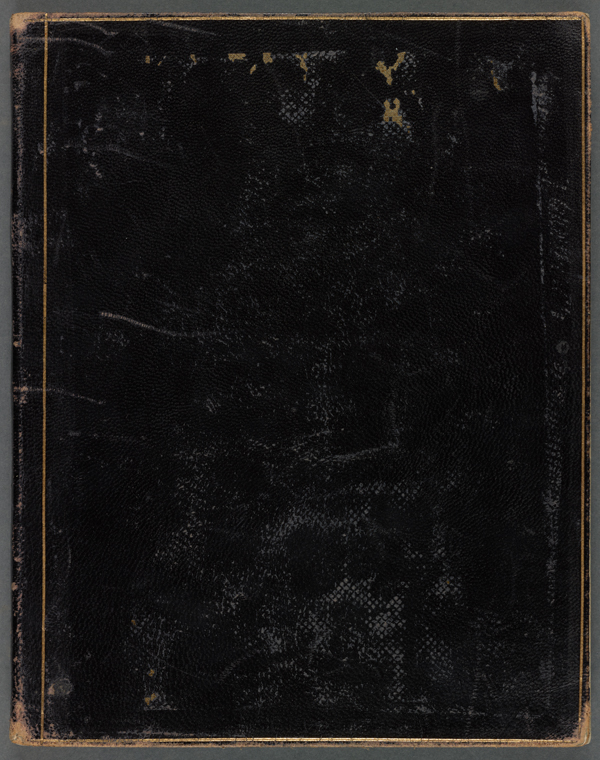
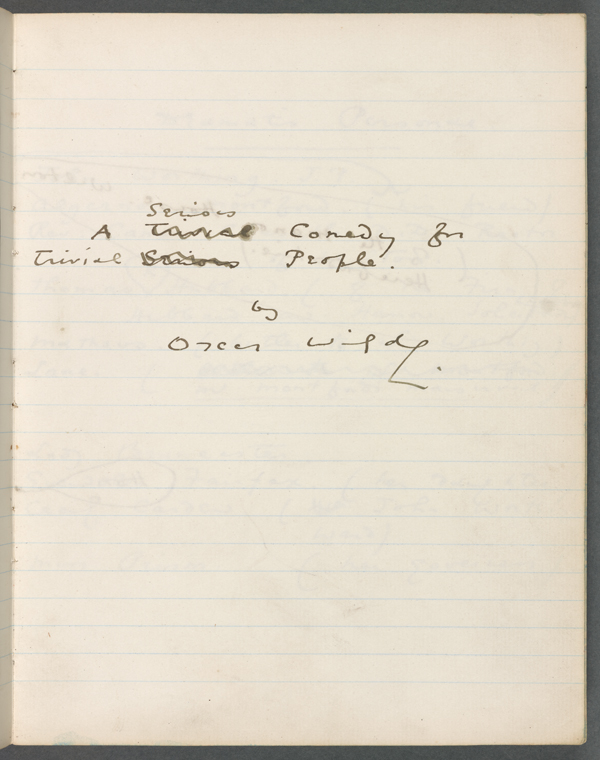
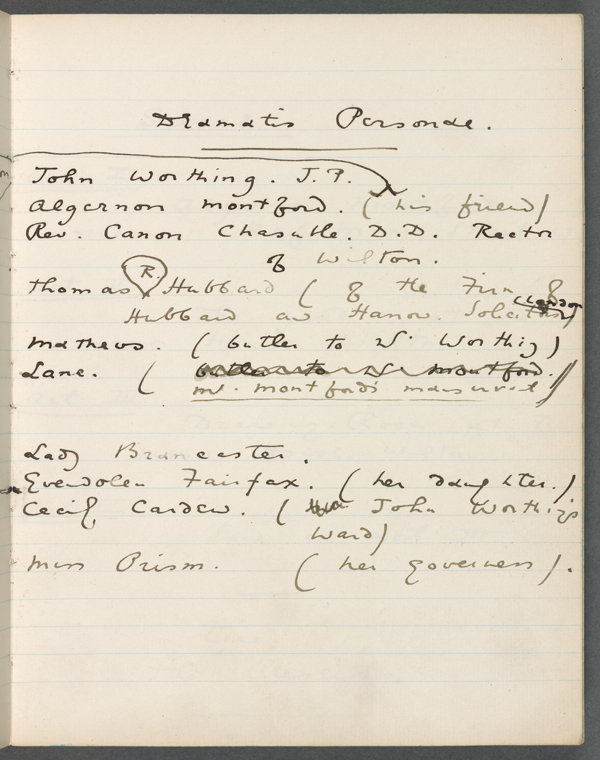
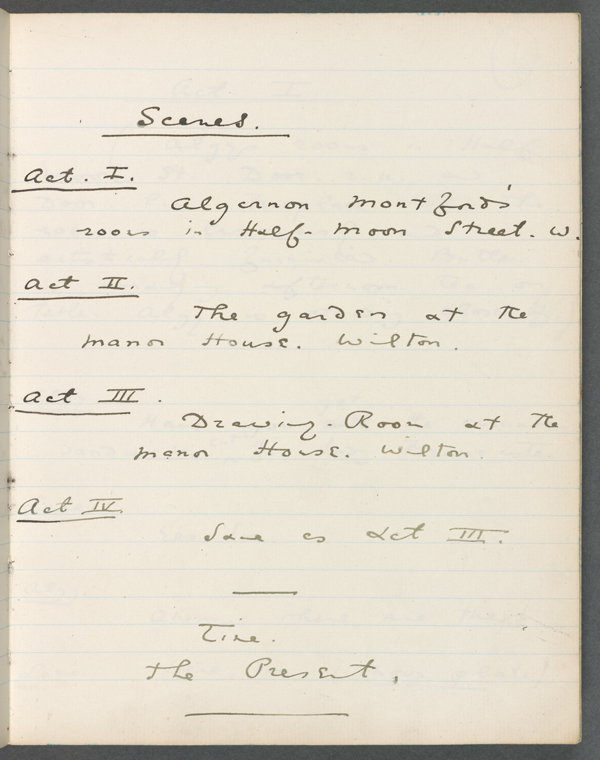
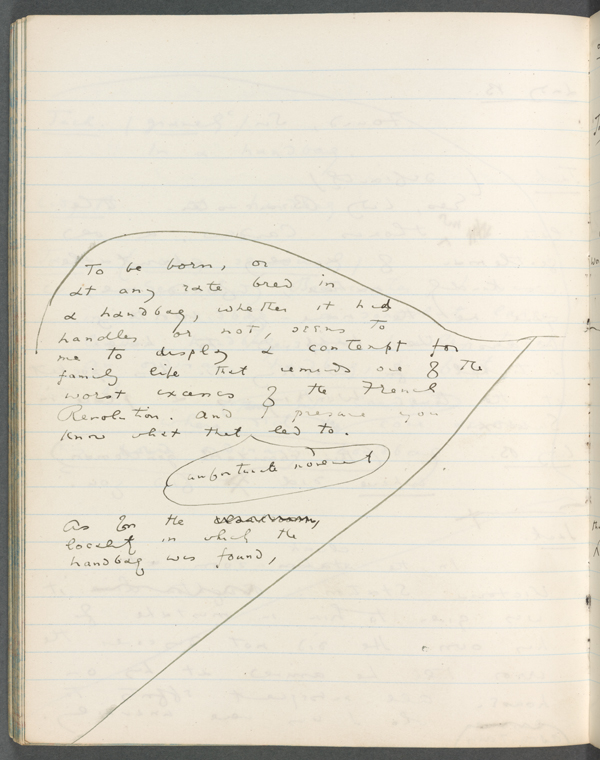
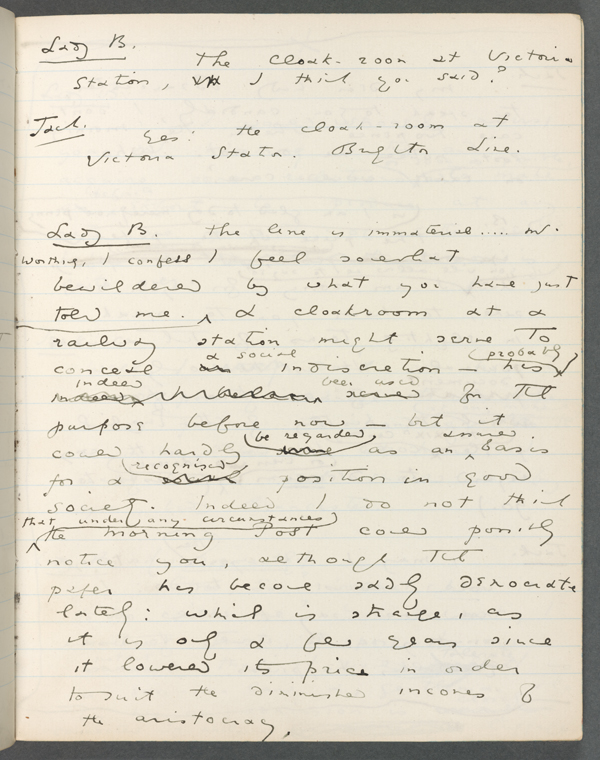
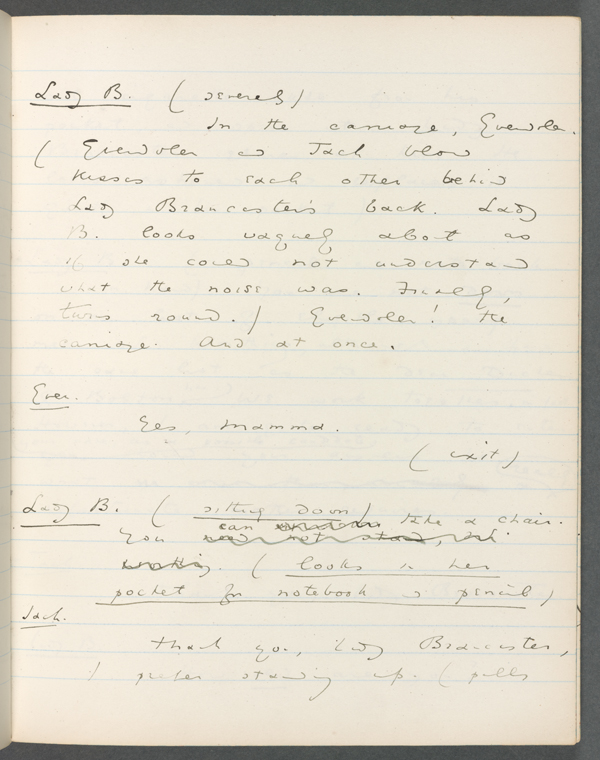
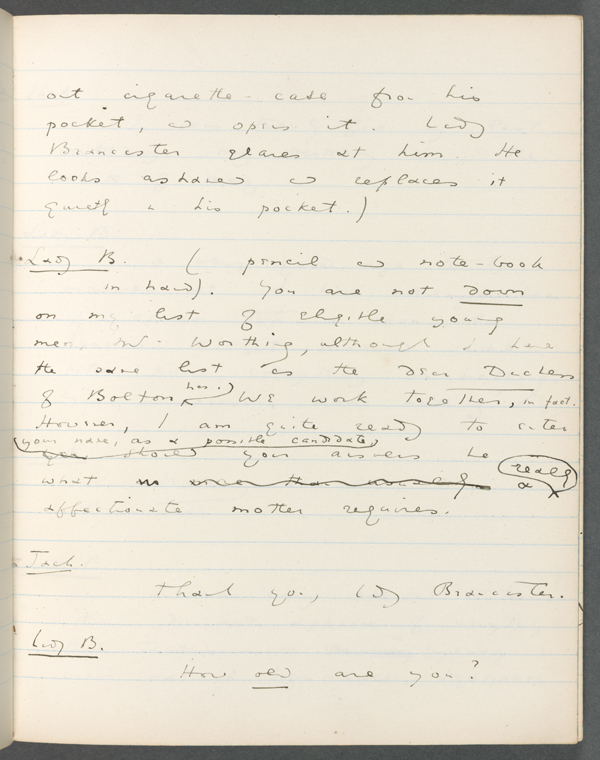
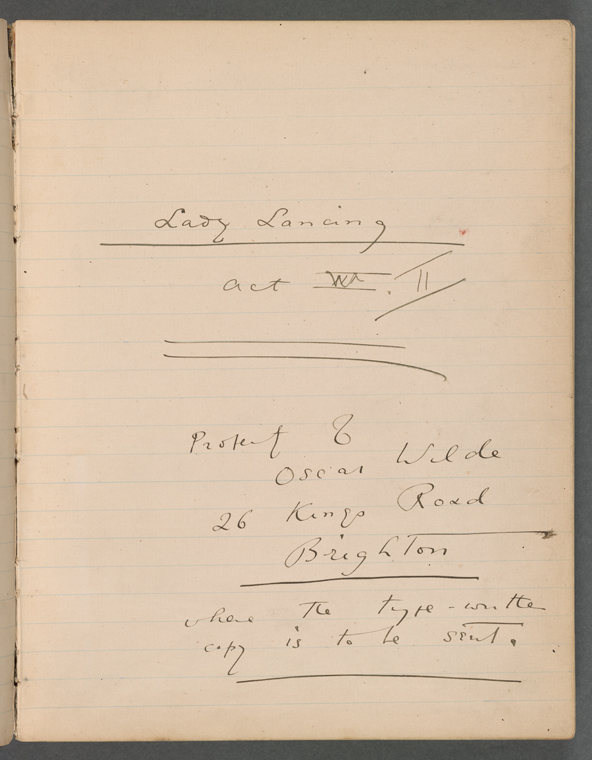
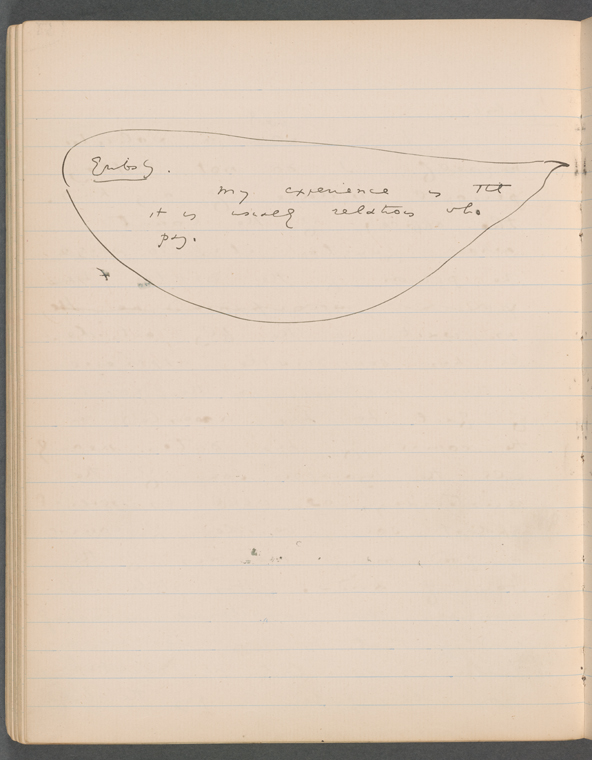
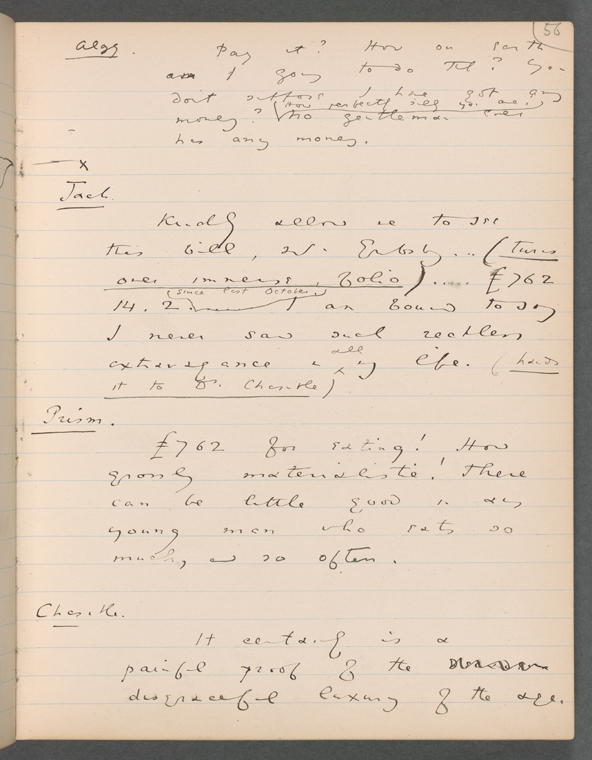
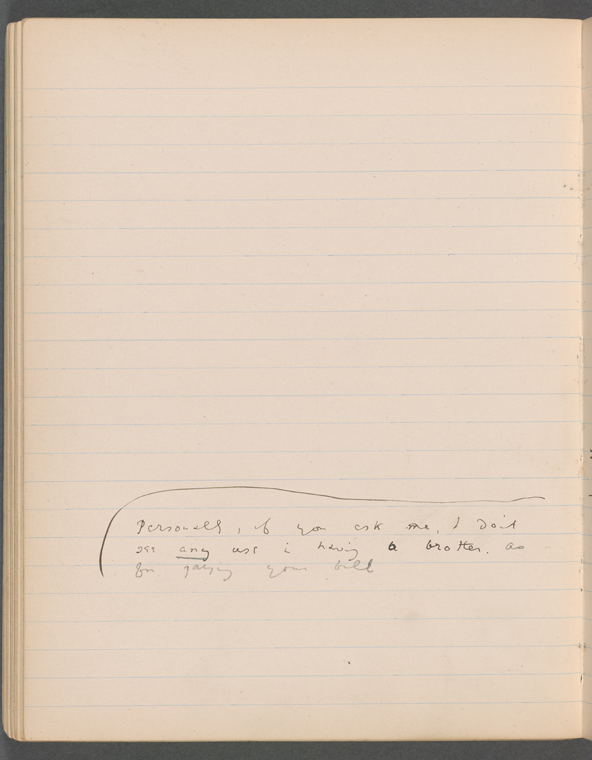
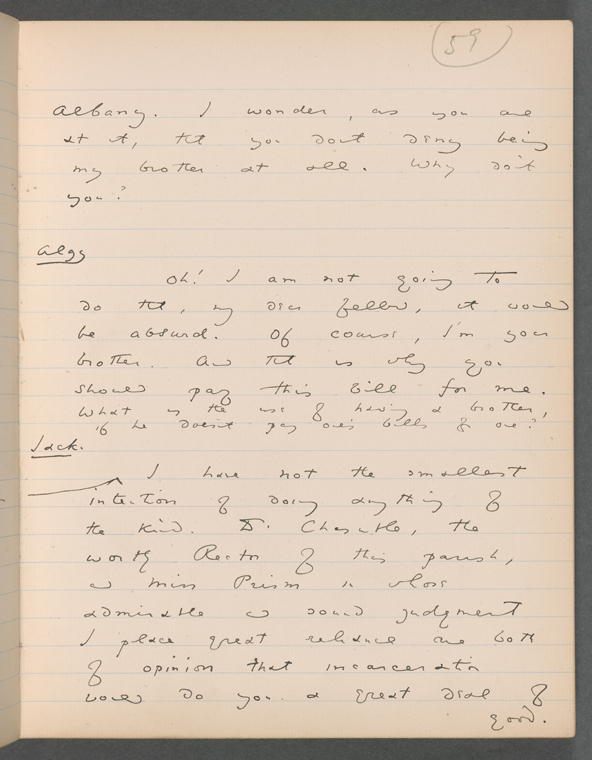
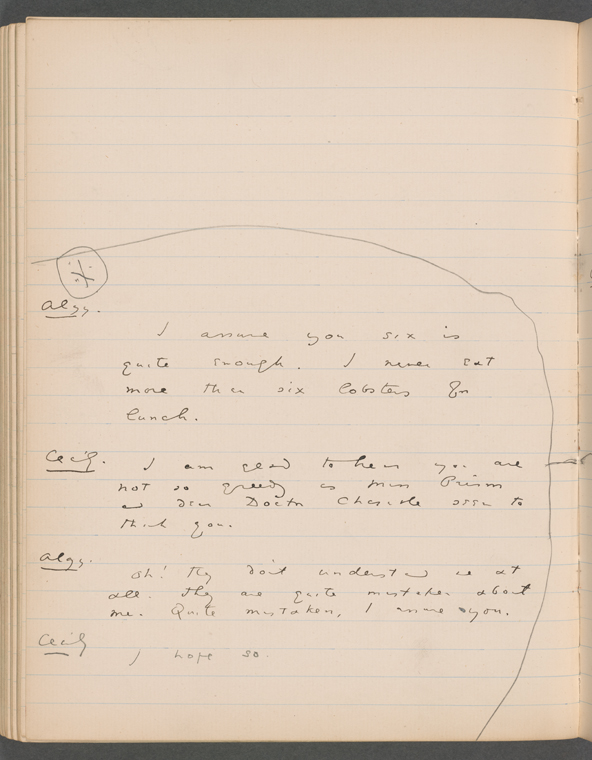
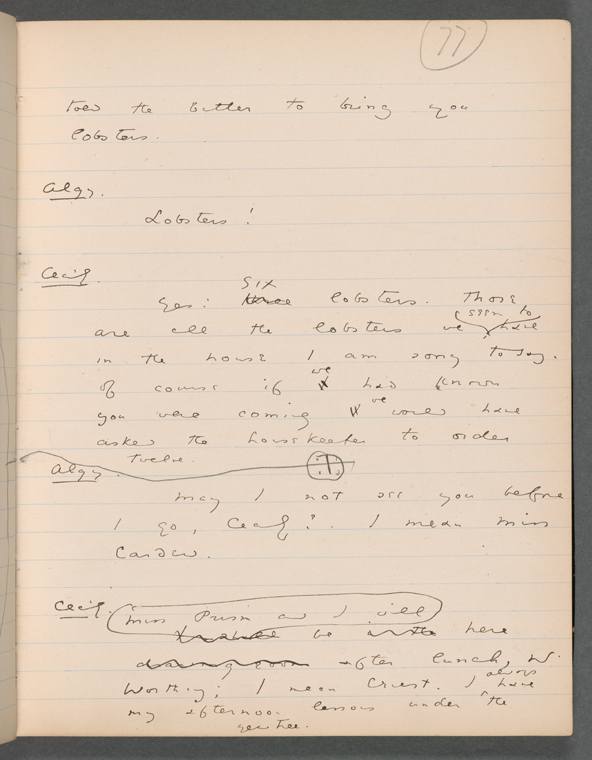
Comments
Act III - The importance of Being Earnest,
Submitted by Gerardo (not verified) on February 11, 2016 - 10:12pm
Act III
Submitted by Meredith Mann on February 12, 2016 - 12:15pm
So by a circuitous path,
Submitted by Wollen Sokken (not verified) on December 16, 2016 - 8:44am